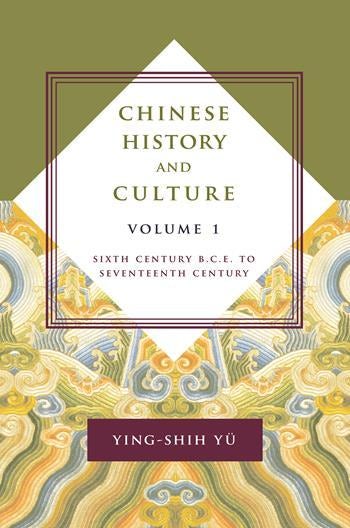The recipient of the Kluge Prize for lifetime achievement in the humanities and the Tang Prize for "revolutionary research" in Sinology, Ying-shih Yü is a premier scholar of Chinese studies. Chinese History and Culture volumes 1 and 2 bring his extraordinary oeuvre to English-speaking readers. Spanning two thousand years of social, intellectual, and political change, the essays in these volumes investigate two central questions through all aspects of Chinese life: what core values sustained this ancient civilization through centuries of upheaval, and in what ways did these values survive in modern times?
From Yü Ying-shih's perspective, the Dao, or the Way, constitutes the inner core of Chinese civilization. His work explores the unique dynamics between Chinese intellectuals' discourse on the Dao, or moral principles for a symbolized ideal world order, and their criticism of contemporary reality throughout Chinese history. Volume 1 of Chinese History and Culture explores how the Dao was reformulated, expanded, defended, and preserved by Chinese intellectuals up to the seventeenth century, guiding them through history's darkest turns. Essays incorporate the evolving conception of the soul and the afterlife in pre- and post-Buddhist China, the significance of eating practices and social etiquette, the move toward greater individualism, the rise of the Neo-Daoist movement, the spread of Confucian ethics, and the growth of merchant culture and capitalism. A true panorama of Chinese culture's continuities and transition, Yü Ying-shih's two-volume Chinese History and Culture gives readers of all backgrounds a unique education in the meaning of Chinese civilization.
- Table of Contents
- Author's Preface
- Editorial Note
- List of Abbreviations
- Chronology of Dynasties
- 1. Between the Heavenly and the Human
- 2. Life and Immortality in the Mind of Han China
- 3. “O Soul, Come Back!” A Study in the Changing Conceptions of the Soul and Afterlife in Pre-Buddhist China
- 4. New Evidence on the Early Chinese Conception of Afterlife
- 5. Food in Chinese Culture: The Han Period
- 6. The Seating Order at the Hong Men Banquet
- 7. Individualism and the Neo-Daoist Movement in Wei-Jin China
- 8. Intellectual Breakthroughs in the Tang-Song Transition
- 9. Morality and Knowledge in Zhu Xi’s Philosophical System
- 10. Confucian Ethics and Capitalism
- 11. Business Culture and Chinese Traditions—Toward a Study of the Evolution of Merchant Culture in Chinese History
- 12. Reorientation of Confucian Social Thought in the Age of Wang Yangming
- 13. The Intellectual World of Jiao Hong Revisited
- 14. Toward an Interpretation of Intellectual Transition in the Seventeenth Century
- Acknowledgments
- Appendix. The John W. Kluge Prize Address and The Tang Prize for Sinology Acceptance Speech
- Index

